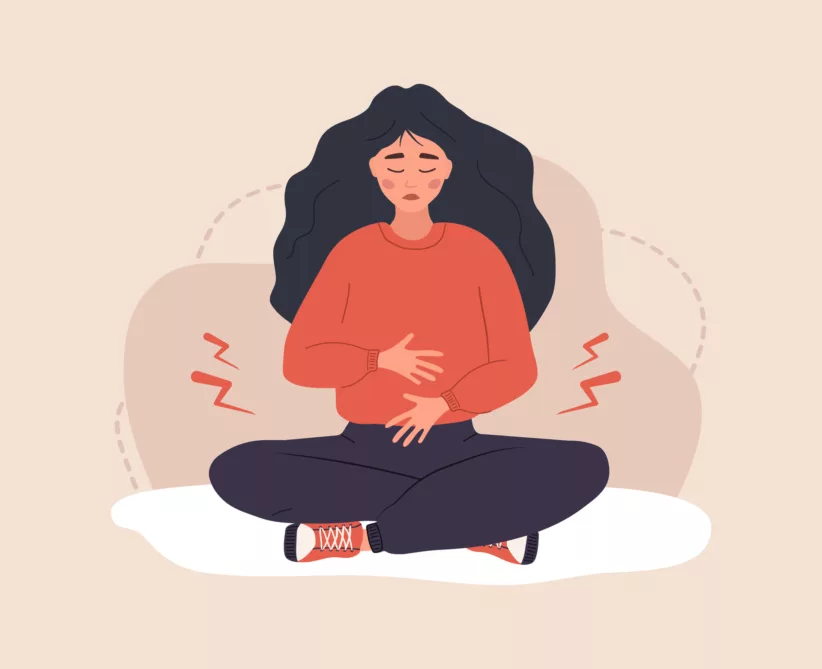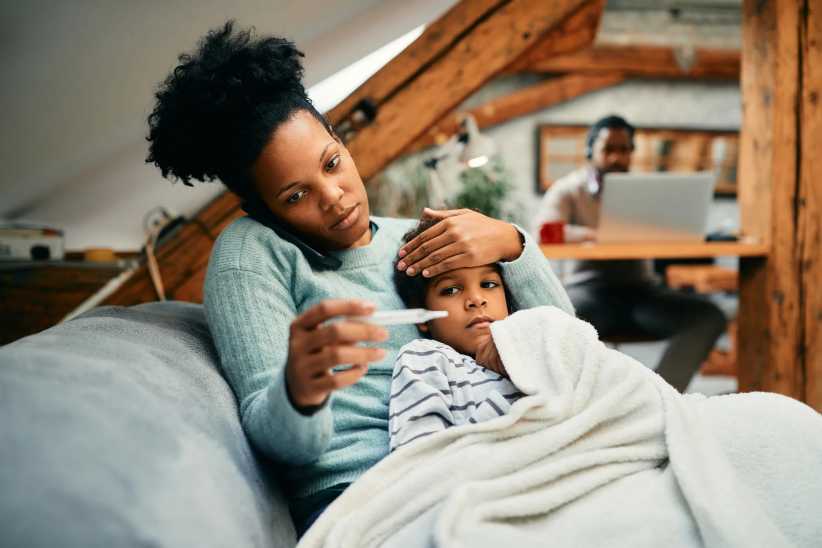
Will Discussing Menstruation in Public Schools be Banned?
A ban on discussing menstruation in public schools. A lack of affordable period products. A social media mockery of period cramps.
These are all ways that women’s periods continue to be stigmatized many years after the second wave of feminism of the 1960s hoped to change that. Controversy around periods is happening in some states throughout the country, but what does it all mean for women and girls in New York?
Just as the iconic book, “Are You There God? It’s Me, Margaret” launches on the big screen, many of its themes are mirrored in controversy in today’s world. It’s been over 50 years since the Judy Blume classic hit the shelves, and subsequently, landed in the hands of tween- and teen-age girls across the country.
It’s a book about the beginning of adolescence, puberty and periods. In other words, a lot of girl and women topics that have become politicized in typical 2023 fashion.
In the book, 11-year-old Margaret struggles to navigate adolescent anxieties, including the arrival of her first period. In real life, it’s a struggle most girls can relate to.
Meanwhile, today’s adults are struggling to understand why discussing menstruation in public schools has become a topic du jour. In addition to political controversy, it seems the biology of periods is being mocked on social media by those who can’t ever possibly know what a period is like.
Florida Might Ban Discussing Menstruation in Public Schools. What About New York?
Sex education has been around for decades, but political controversy around it is taking shape in Florida. The state’s House Bill 1069 — dubbed the “Don’t Say Period” bill — was proposed recently to make clear how, what and when sex education can be taught in the state’s public schools.
According to the bill, introduced by Florida Rep. Stan McClain, these discussions would only be allowed in grades six to 12.
Since the bill was introduced, a lot of concern has been on girls’ periods: When they can talk about it and when they can’t.
Although the bill does not specifically ban girls from talking about their periods in school, McClain, a Republican, said during a committee meeting in Florida that “it would,” according to USA Today.
Most girls start their periods between age 11 and 14, but it is biologically possible for it to start earlier or later. In fact, even girls as young as 9 years can experience menarche—which refers to the first menstrual period in a female adolescent.
So, how can a ban on period talk ever be enforced? How can politicians, school officials and who-knows-who-else possibly censor what little girls talk about? New York Family reached out to McClain to get these answers, but he didn’t respond.
Things don’t seem as controversial in New York, according to this statement from Governor Kathy Hochul’s team.
“Governor Hochul is committed to ensuring that all of New York’s students have access to a high-quality education that equips them with the skills and knowledge they need to succeed,” a spokesperson for the governor said.
The state’s education department didn’t respond to multiple emails asking about sex ed policies in New York public schools. But according to SIECUS, an advocacy group for sex education, New York schools are not required to teach sex education. However, HIV/AIDS instruction is required.
Policies, of course, could change. NYS Senator Samra Brouk, a Democrat, introduced a bill in 2021 that would require comprehensive sexuality instruction for students as young as kindergarten age. As of now, that bill is still in the Senate education committee and hasn’t been passed as law.
A Ban on Discussing Menstruation in Public Schools: What do New York Parents Think?
While many NYC parents are not in favor of banning period talk in schools, many have no objections to limiting sex education to middle and high school.
“In my opinion, grades 6 to 12 would be appropriate because that’s usually the average age when puberty begins,” said NYC mom, Alisha Eadicicco.
Mary Florio, another mom from NYC, said that more states should ban sex education before middle school.
“I believe it should be banned in all states until junior high school and then only with the parent’s permission as was done in the past,” Florio said. “NYC school systems have taken away too many rights over children from their parents and caregivers.”
But what about menstruation? Should girls be banned from discussing their periods?
“I guess it depends on what age they’re talking about it, to who and in what context,” Florio said. “If they’re talking about it with their same-age friends to help deal with it, then I’d say no. But if they’re bringing it up in mixed company during class, then I’d say yes.”
Rachel Cugini, another local mom, said she’s not OK with having sex education introduced in school at an early age.
“I would like to understand why the schools and government feel like this topic needs to be addressed,” she said. “And why at such an early age? Schools can’t give out a Tylenol but they are going to tell a second-grader about sex? Why is this appropriate?”
Like many other other local parents, she wouldn’t be on board for a ban on period talk.
“No, I don’t think they should ban girls from speaking to each other about their periods,” the mom of two said. “I would hope that’s false because wouldn’t that really fall into free speech?”
Why Aren’t Feminine Hygiene Products Provided in Most Public Schools?
Some have argued that silencing women and girls from talking about their periods is a form of control. It keeps a lid on a topic that some people might find, well…uncomfortable. Could this be part of the reason why most states do not require or allocate funding for period products in public schools?
For women and girls, feminine hygiene items like sanitary pads and tampons are as necessary as toilet paper. Yet, most states do not require these products be stocked in school bathrooms. New York is not one of these states.
According to the Alliance for Period Supplies, a New York bill took effect in 2018 requiring all elementary and secondary public schools in NYS serving students in any grade from six to 12 to provide feminine hygiene products in school restrooms at no charge to students.
Things are bleaker for women and girls in states like Idaho, where a bill funding free menstrual products in public schools was shot down in March. But it wasn’t without a fight. In fact, it was a tie vote, 35-35, falling just one vote short of passing the House.
Many Republicans —including Republican men such as Rep. Rod Furniss— supported the bill.
As reported in the Associated Press, Furniss said, “It’s not a lot of money in the state’s budget. Today is a step to preserve womanhood, to give it a chance to start right, to not be embarrassed or feel alienated or ashamed, or to feel like they need to stay home from school due to period poverty.”
But of course since the bill failed, there were House reps who rejected it. State Republican Rep. Barbara Ehardt even said phrases such as “period poverty” and “menstrual equity” are “woke terms.”
So the period status quo in Idaho remains the same. The state will pay for toilet paper, paper towels and soap in public schools, but not tampons.
Making a Mockery of Menstruation
A ban on discussing menstruation in public schools is not something most women take lightly. But in addition to this controversy is another type of attack on periods. Peppered throughout social media channels including TikTok and Twitter are videos of biological men “experiencing” menstrual cramps.
In this video, a biological male who may or may not identify as a woman is seen struggling with period pain, even though he doesn’t have the organ that cramps up: a uterus.
This article from Aisle features an interview with Meghan, a transgender woman who described feeling premenstrual syndrome symptoms (PMS) after taking an antiandrogen to prevent testosterone from affecting the body:
“I thought it was maybe wishful thinking or psychosomatic. Within a couple of weeks, I started getting much more emotional than I used to. My emotions started bombarding me and I would have these crying fits…There have been about two or three times when I’ve actually experienced physical cramping in my lower belly.”
The article does not go on to explain what the “lower belly” pain was since this individual is a biological male and doesn’t have a uterus.
Supporting Women and Girls
If you are interesting in alleviating period poverty or supporting better availability of period products for women and girls, here are some organizations to check out:













